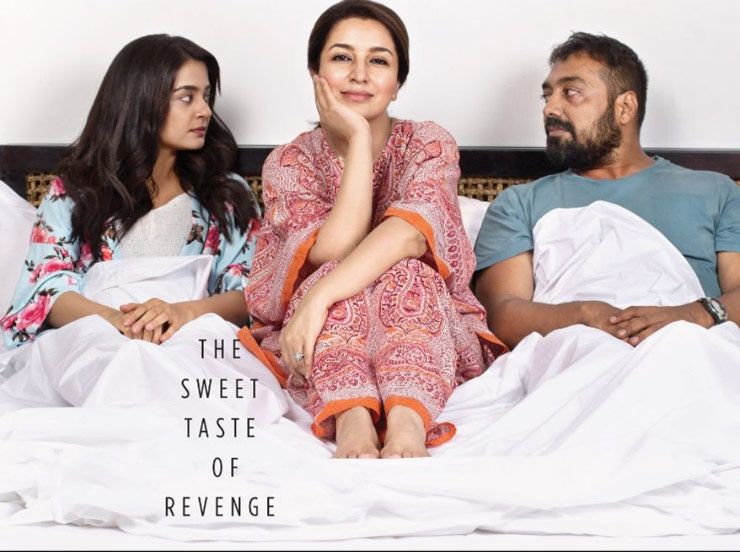While adultery has been quite a favourite subject for film-makers all over, one cannot underestimate its delicateness. It is this fragility of adultery as a subject that takes away from the otherwise well-made short film by Mansi Jain, Chhuri. Starring Anurag Kashyap as Sharad, a married man engaging in intimate relationships outside marriage, Tisca Chopra as Meera, a smart housewife and Sharad’s wife, and Surveen Chawla (name not mentioned) as an independent woman that Sharad is having an out of marriage relationship with.
The film catches intensity when Meera goes to the house of Sharad’s out of marriage partner, while Sharad is there. A confrontation of sorts happens between the two women, while Sharad hides in the closet. In this, somehow Meera makes the woman admit that she is also seeing another man besides Sharad, which eventually leads to Sharad hypocritically questioning her and fortunately being thrown out (sans clothes) of the woman’s house.
While the above is obviously problematic in a lot of ways, to spell it out with precision is the need of the hour. To begin with, broadly speaking, if one must look at the concept of adultery within a feminist perspective, then definitely one must detach morality from it. But that might be tough for most of us and may need a whole deal of diversion, so let’s dissect the smaller issues here.
The absolutely irksome part is that our social constructs make this the most believable reality.
Chhuri reiterates the stereotype that a middle-aged man, seemingly bored with his marriage, engages with a younger single woman in an outside marriage relationship. Then the film opts for the textbook construction of ‘this kind of woman’. This woman, who is willing to get intimate with a married man, must be conventionally more attractive than said man’s wife.
This kind of woman is supposed to have questionable morals. This kind of woman should be dressed in a particular way, with her make-up done in a particular way. This kind of woman must always be on the prowl, trying to seduce her rich boss. And of course, this kind of woman should be a dimwit.
But then the assumption of patriarchy is that all women are dimwits. Anyway, the absolutely irksome part about all of this is that our social constructs make this out to be the most believable reality. Obviously, it wouldn’t be realistic if Sharad’s out of marriage relationship was with an older or fatter woman or a woman who was exceptionally intelligent.
Next comes the complete character assassination of the woman who is Sharad’s out of marriage partner. Oh what a crime it is to be a woman, and independent, and have multiple partners! The standards for men and women are clearly different – Hypocrisy Exhibit A.
the assumption of patriarchy is that all women are dimwits.
However, the saving grace of Chhuri here could’ve been that Sharad’s out of marriage partner throws out his clothes when he is judgmental of her choice to have another intimate partner. But alas, this having another partner has also been used to shame her as a gold digger and hence, not much grace here either.
Finally the most problematic of all, the whole idea of pitting a woman against another woman, reinforcing the very patriarchal notion of how ‘aurat hee aurat ki sabse badi dushman hoti hai’ (‘woman is woman’s biggest enemy’). By all means, Meera should’ve gone looking for justice as her husband breached a commitment.
But the vengeful way in which it was done, by engaging in the systemic character assassination of Surveen Chawla’s character and making her the exact stereotype that patriarchy commands her to be, was clearly a product of the deep-seated socialization. This overshadows all logic and reason, allowing the adjective powerful to be associated with Chhuri, when in fact it is patriarchy and social constructs that are powerful.
Also Read: Lakshmi – A Must Watch Short Film On Conjugality And Sexuality
Featured Image Credit: Mensxp.com
About the author(s)
Siddhi is a women-centred social work student and ex-journalist, who actively enjoys moping and whining.



